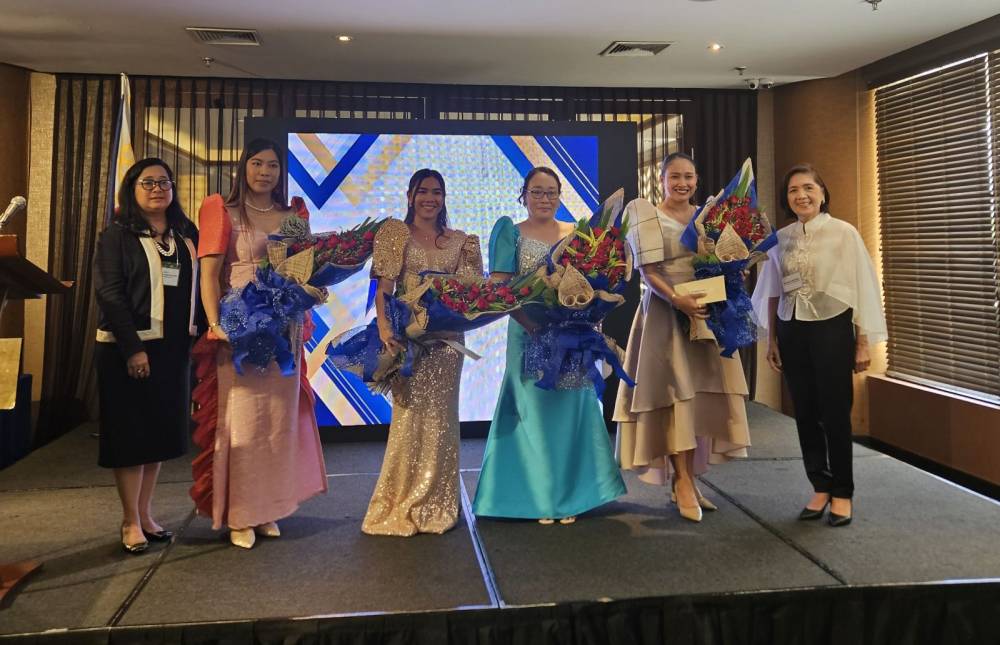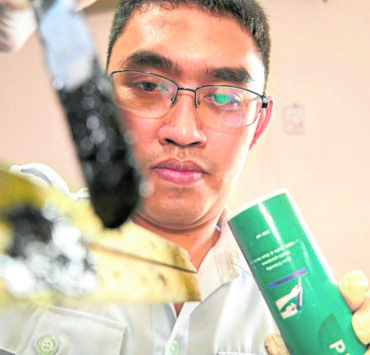Meet 4 outstanding women educators who are transforming rural communities

Four women educators have been recognized for innovative methods in delivering quality education to rural communities and empowering the youth to make positive contributions.
The 2024 Filipina Achievers in Rural Education Award (Flora) honorees are: Dr. Mary Hazel Ballena of Abra; Ervie Ann Consigna Conte of Surigao del Norte; Marife Matic Mustacisa-Lacaba of Samar; and Ma. Ruby Cordero Primero of Iloilo.
Now in its second year, Flora expanded its search and sought out women educators from fourth, fifth and sixth-class municipalities who have developed practical methods to foster critical citizenship among Filipino youth. Each awardee received P100,000 in cash prize.
The Flora award is a project of Multinational Foundation Inc. (MFI) that aims to address two critical areas: rural education and women empowerment. It is in partnership with The Outstanding Women in the Nation’s Service (Towns) Foundation as the search and organizing committee.
Amid the challenges that beset the education system, the winners were recognized for remaining true to their calling of molding the mind and character of the next generation—most of whom are still reeling from considerable learning gap due to the pandemic lockdowns.
The four women educators were credited for coming up with creative ways to address the declining foundational aspects of literacy, such as reading, spelling and writing, while drilling in environmental awareness and values-based critical citizenship.
Community-based approach
Ballena, 40, currently serves as principal for three elementary schools: Pagala West Elementary, Pagala East Elementary and Bangcagan Primary School, all in the Bucay district of Abra.
With only 17 teachers handling 178 students, Ballena focused on a community-based approach to learning.
The glaring lack of competency in spelling and composition among students, she says, is because the students are glued to their devices. To wean them off their device, she initiated Project Sobreh (Sending our best regards, embraces and heartfelt connections), which encourages students and teachers to write traditional letters or simple messages of hope to persons deprived of liberty (PDLs) at the Bucay District Jail.
Ballena explains that as most of the inmates have been abandoned, sending letters will ease their loneliness. Aside from learning proper composition, writing them also teaches children empathy while giving a human touch to the rehabilitation of the inmates.
“Who are we to judge when no one is perfect? We have to give these inmates a second chance because we don’t know their stories and some of them are in prison because they are wrongfully accused,” she adds.
Ballena also introduced Project Indayon to close the learning gap among early-stage learners at Bangcagan Primary School. Through this project, Ballena teaches the students reading skills while they are seated in a duyan (hammock). “This made them excited to go to school because they feel at ease while learning,” she says.
Mobilizing the youth
Conte found her true calling as an educator during a weekend shoreline cleanup on the remote island of Anajawan in Surigao del Norte. Since then, the 29-year-old has spearheaded initiatives addressing critical issues such as limited electricity, malnutrition and access to quality education.
Her award-winning Paglajag environmental program mobilized the youth (ages 3 to 29 years old) on environmental and cultural issues of Isla Anajawan.
“Since I am from the island, I witnessed firsthand the needs of the children. I, myself, experienced being underserved. So I got in touch with my network to help the children with all their needs while anchoring it on the core values of being maka-diyos, maka-tao at maka-kalikasan (for God, people and the environment) to be more holistic,” Conte says in Filipino.
She leads the children to a shoreline cleanup drive every weekend. After picking up plastic bottles and trash by the sea, she conducts a community prayer meeting to help with their values formation.
The multigrade teacher also provides leadership training, environmental mapping, art workshops and even built a recycling studio wherein they convert the collected plastics into reusable materials.
Living by the mantra that “it takes a village to raise a child”, Conte emphasizes the need for collaboration within communities for the children to have a holistic development.
Teacher, community leader
Aside from being a professor at Samar State University, 34-year-old Lacaba is an environmental educator and a community leader.
Through her research, she played a key role in the sustainable development of Philippine tree ferns. She is a published author and researcher whose work has been recognized and utilized by Philippine universities and libraries.
Outside office hours, Lacaba strives to improve the livelihood of farming and fishing communities in Catbalogan, Samar. Through her Center for Lifelong Learning (CeLL) initiative, marginalized young people are taught science and entrepreneurial skills. She organizes training sessions while addressing gaps in education through learning modules on research writing and environmental science for schools and community organizations.
“I remind them (the Samar community) education is the path out of poverty and that learning lasts a lifetime … At CeLL, we believe that life is learning and learning is life,” she adds.
Reading advocate
Primero is an education leader whose innovations significantly elevated literacy and learning across schools and reading centers.
Her project Creed (Community reading engagement for enhance development) helps students in grades 4 to 6 who are lagging in reading skills. During the pandemic, she established in each barangay of Mina, Iloilo, learning centers with readily available resources for reading and numeracy materials.
Creed’s goal is to assist struggling readers and develop their skills. The project has since then become a community effort that also involves other teachers, parents, youth and local leaders as well as volunteers who foster a shared responsibility model.
“[It’s driven by] only the dedication and passion to help our learners, especially those who were the last, the least and the lost. I never anticipated that this endeavor would lead to such an honor but it serves as a reminder that groundbreaking ideas often emerge when we least expect them,” she says.
Building the next generation
This year’s Flora awards delved into two aspects of critical citizenship: youth awareness and active participation to effect change.
The honorees have helped raise youth awareness on governance, climate change and the need to uplift “the quality of life of those in the fringes and the many other problems besetting the various segments of society,” explains Marilou Cristobal, president of MFI.
Lawyer Patricia-Ann Prodigalidad, president of Towns Foundation, says that critical citizenship is a concept that is “timely and powerful reminder of the role education plays in shaping not just minds but character.”
“These are not easy lessons to teach, but through your daily example, your students are learning what it means … to care deeply, think critically, act responsibly and love this country genuinely. You’re building the kind of citizens who will make our democracy stronger, our communities kinder and our nation more just,” she tells the awardees.





















